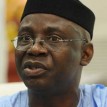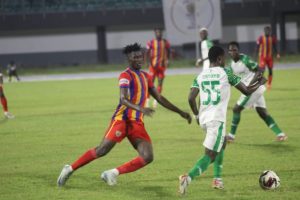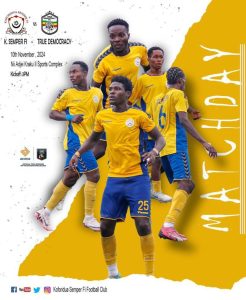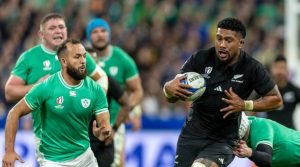PASTOR BAKARE AT 66: Youths aren’t Nigeria’s problem, I once apologised that we failed them
• ‘My NYSC years and life as Sokoto boy (Yaro)’
• Speaks on how, as a professional photographer, God created opportunity for his conversion to Christianity
• Backlash from family and the ‘big persecution’
By Dapo Akinrefon, Deputy South-West Regional Editor
Serving Overseer of the Citadel Global Church, Pastor Tunde Bakare, clocked 66 on November 11. In this no-holds-barred interview, he goes down memory lane, speaking on growing up, how he was raised in abject poverty, and what he describes as his destiny to become the President of Nigeria among other issues.
Looking at the way the #EndSARS protest went, there appears to be a narrative that the youths are the problem of this country…
Teachers back then believed that their reward was in heaven and they were not well paid. They took care of their students and they did not exchange sex for marks. It is because we had selfless leaders until the years of locust when the military truncated it. As much as I am an advocate of restructuring, we have to apologise to ourselves. There must be self-respect. When I was in Sokoto they called me Yaro
(boy), I could sleep and eat anywhere and there was no discrimination. Nigeria was peaceful then because there was order. Government was interested in the people.
It wasn’t the North that truncated our democracy. It wasn’t the North that destroyed our federalism but the military regime of Aguyi Ironsi. When the likes of Ahmadu Bello were asking for state police to govern his area properly, we (South) fought him to a standstill. Now, we are clamouring for state police that we used our hand to destroy. If you release the energy of the Igbo to begin to invest and manufacture, they will perform wonders.
During the Civil War, they manufactured their own weapons with the little resources at their disposal. If you think northerners are useless or lazy, blow the bridge and start to produce your own tomatoes and foodstuff. We need a lot more by sitting on a table of brotherhood. We need to forgive ourselves for past mistakes so that we don’t destroy the future. I do not think the youths are the problem of this country.
I apologized to the youths during my state of the nation broadcast that we did not hand over to them a nation that can meet their needs. Many youths think their fathers have failed them. Therefore, they can do better. We need both the old and young to make Nigeria great. Those who refused to be trained are the ones that will kill the ones we trained abroad if care is not taken. We need the energy of our youths and, at the same time, we need the insight of our elders.
At 66, how do you describe your journey because many do not know much about your background?
I give God all the glory. I was born inside my father’s house in Abeokuta on November 11, 1954, at 11 am. I was born to parents who were Muslims. My father was a chieftain in the Islamic religion and so was my mother. My grandfather was the first Chief Imam of Igbore/Sodeke Mosque. I grew up in what I would describe as declining wealth.
READ ALSO: Frozen accounts/arrests: #EndSARS promoters may go underground, worsen insecurity, ex-DSS chief warns
My father was a wealthy man but he was an old man when I was born. I was the 22nd and the last child. The house I was born into was built in 1922, a storey building and it is still standing there. I would say I was born into a declining wealth and raised in abject poverty.
Beneficiary of Awolowo’s free education
My father died before my third birthday. At that point, I started my NYSC meaning (Now Your Suffering Commences).
I didn’t feel it in the beginning because of the intervention of the late Chief Obafemi Awolowo who gave free education to us in the Western Region. When my father died in 1957, I was taken to Sokoto with my mother to stay with my uncle. And when school was about to start, I returned to Abeokuta.
As a little child, I spoke Hausa language but later forgot it because there was no one to speak the language with on my return to Lagos. But my mother still spoke Hausa up until she died and President Muhammadu Buhari was shocked when he met with my mother in our hometown, and she spoke clear Hausa in Sokoto accent
What was your experience like after your conversion to Christianity?
I was trying to avoid that question because I do not want to peel old wounds. I gave my life to Christ on September 24, 1974 at Yaba Baptist Church. A friend, who was a Muslim, Ganiyu, became a Christian and he was to be baptized that day. He told me to come and take his photos because I was also a freelance photographer.
I have done so many things and that is why I can’t stand lazy people around me. From washing clothes, I was able to buy a camera which I used for my photography job. When Ganiyu became born again, I was so angry with him for leaving Islam. When I got to Yaba Baptist Church, I was told to remove my cap and I told them that I wasn’t a Christian.
I said I was there to take photos. An elderly man approached me and said that when you are in Rome, you should behave like the Romans. He told me that this is not a mosque and that if I was interested in taking photos, I had to remove my cap. I removed it and sat at the back of the church. I had previously seen the vision of Christ but I didn’t understand who He was and the vision.
The vision repeated itself while I was in the auditorium. When they said we were going to have communion, my understanding of communion at the time was the meal you give to someone who is about to die. There was an elderly Christian in our neighborhood as I was growing up, Baba Balogun. When he was about to die, a catchiest came to administer communion to him. I thought I would also die and the reverend came and said “before we receive communion tonight, I want to preach a short exhortation titled, ‘Jesus is the light of the world.’” I was in front with my camera on and my hand started shaking, I said I had seen it before. I was taken outside and I gave my life to Christ.
But I couldn’t tell anyone at home. I would sneak and go to church. On October 14, 1974, they said at home (where I lived with my brother) that we would be praying together and complained that I was always escaping. I said I couldn’t pray this prayer anymore because I had given my life to Jesus Christ. My elder brother gave me five minutes to pack out of his house. I had two pairs of trousers, three shirts and a few books.
I had to carry them on my head and left his house. If you get to the museum, you would see them there in Abeokuta because I turned my father’s house into a museum in 2008. I passed the night at Alagomeji Bus Stop in Lagos since I had nowhere to go. That night I could have been crushed by two tankers that came to the river. But God helped me the next day when I went to the church to report what had happened to me. I was able to get a room. It was Mr. Odeko that gave me the newspaper I laid on. The persecution was so heavy and you could think the world had come to an end.
- Next week, Bakare speaks on how he was fired from his job months after he got married, Buhari’s ‘help’ to establish his own legal practice, the big search for running mate to then presidential nominee in 2011: His nomination of Jimi Agbaje, Oby Ezekwesili’s rejection to run with Buhari, how Asiwaju Bola Tinubu sent emissary to him to persuade Buhari to run on then ACN platform, and his eventual emergence as then vice presidential candidate, among other issues
The post PASTOR BAKARE AT 66: Youths aren’t Nigeria’s problem, I once apologised that we failed them appeared first on Vanguard News.





